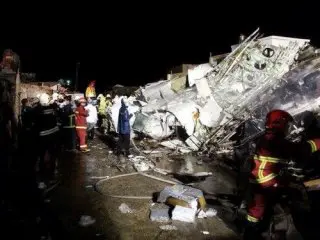After opening up its railways, defence and insurance to global investors over the past three months, India is now trying to woo the manufacturers from across the globe.
Indian Prime Minister Narendra Modi Thursday launched "Make in India" program, asking the investors to set up their shops in India.
Initially, it had been taken as a mere slogan. But when Modi launched it, "Make in India" has turned into a mission for the Indian government officials.
"Make in India" term given by the Indian prime minister on his independence day speech on 15th of August this year is a new initiative taken by the Indian government, aimed at enhancing the ease of doing business in India for global investors who are looking forward to investing in India.
"We want to bring a change in the Indian economy in such a way that increases the manufacturing growth rate and the benefit of this should reach to Indian youth in terms of jobs. This would improve the financial condition of the poor families and they would eventually land into the bracket of middle class families," said Modi during Thursday's address to entrepreneurs and officials here.
"More families with greater purchasing power will create demand and would further attract more manufacturers. This would further enhance the manufacturing growth and create more jobs. Again this process will create more market. This is a growth cycle which we want to spin with today's launch. This is a lion step ... make in India," he said.
Under the umbrella of "Make in India", the Indian government has announced several measures to boost investors' confidence in India.
The setting up of "Invest India" department for foreign investors is a major step forward in this regard. "Invest India" will also help the investors to understand India's complex regulatory structure and get the approval from various government departments for the global investors.
The government has also relaxed several labour laws that were hampering the growth of manufacturing industry in India. Twenty- five sectors including automobile, chemical, information technology, electronics, railways and real estate among others are identified to be opened up more for investors around the globe in order to make India a manufacturing hub.
"Come, we invite you. There is a plethora of opportunities in India. Infrastructure needs same attention as we are giving to manufacturing. India can no more ply on its aging infrastructure if we want to achieve our goal," said the prime minister.
"Whenever anybody has talked about infrastructure, it used to be considered as rail, road, port, airport. Now we have to go to the next generation infrastructure. We want highways as well as i- ways. When I say i-ways, it's meant for information ways and that is (needed) for digital India (dream). If we need an electric grid, then we also need a gas grid. We need water grid as well. We need optical fiber network too. That's how I dream about future India. And it's an opportunity for investors," he said.
Industry leaders have hailed the Indian government's pro-active approach towards business and economy. But they also put their demand forward for fast approval of their projects by the government.
"As we work towards realizing this dream as a nation, we would need to work on four areas. First, we need to focus on the ease of doing business, that is making rules, regulations and decision making simple, quick and transparent. Second, the industry would need all the infrastructure, access to land, natural resources, power, railways, ports connectivity and so on. The third, we would need policies for specific sectors that have the highest potential for growth. And fourth, we will need to give our young people the right training so that they have skills for manufacturing, " Chanda Kochar, CEO of ICICI Bank of India, said at the meeting.
"We also look forward for further ease of doing business in India through quicker, single window approvals for greenfield and brownfield projects. We are happy that your government is looking into the much needed labour reforms to reach worldwide productivity levels. We are sure with you (Indian prime minister) leading from the front, your government will bring in the above initiatives quickly," said Franz Hauber, BOSCH, Germany.
Cyrus Mistry, Chairman of Tata group said that in the last few months, the government has taken some key decisions and set the stage for further deliberations.
"These include training and skills development, investments in infrastructure including the digital India and smart city programs, reversing inverted tax structure, expediting the goods and services tax implementation and providing financial incentives to medium and small scale enterprises," he said.
Manufacturing sector contributes about 15 percent to India's total gross domestic product. The government is now trying to take it up to 22 percent over the next few years.
However, due to a lot of complexities involved in doing business, India ranks 134 out of 189 countries on the World Bank's 'ease of doing business index' in 2014.
Many still believe doing business in India is a tough nut to crack due to the country's complex regulations, pending issues in the court and corruption prevailed in the government departments.
But now the Indian prime minister is promising to change all that. With his signature campaign "Make in India" aimed at providing all government support to the investors, he is asking the global investors to invest in India.
 简体中文
简体中文

